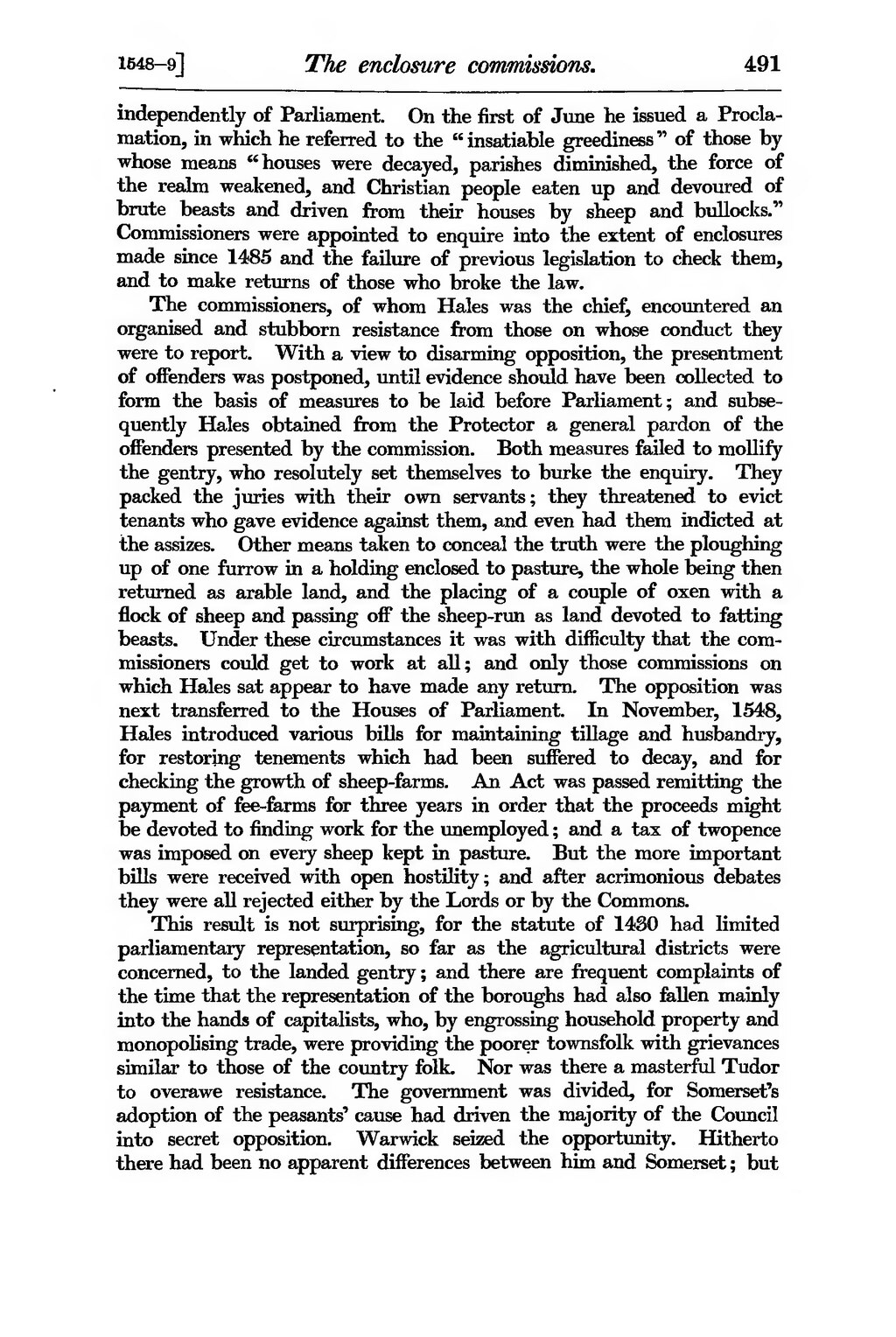independently of Parliament. On the first of June he issued a Proclamation, in which he referred to the " insatiable greediness " of those by whose means "houses were decayed, parishes diminished, the force of the realm weakened, and Christian people eaten up and devoured of brute beasts and driven from their houses by sheep and bullocks." Commissioners were appointed to enquire into the extent of enclosures made since 1485 and the failure of previous legislation to check them, and to make returns of those who broke the law.
The commissioners, of whom Hales was the chief, encountered an organised and stubborn resistance from those on whose conduct they were to report. With a view to disarming opposition, the presentment of offenders was postponed, until evidence should have been collected to form the basis of measures to be laid before Parliament; and subsequently Hales obtained from the Protector a general pardon of the offenders presented by the commission. Both measures failed to mollify the gentry, who resolutely set themselves to burke the enquiry. They packed the juries with their own servants; they threatened to evict tenants who gave evidence against them, and even had them indicted at the assizes. Other means taken to conceal the truth were the ploughing up of one furrow in a holding enclosed to pasture, the whole being then returned as arable land, and the placing of a couple of oxen with a flock of sheep and passing off the sheep-run as land devoted to fatting beasts. Under these circumstances it was with difficulty that the commissioners could get to work at all; and only those commissions on which Hales sat appear to have made any return. The opposition was next transferred to the Houses of Parliament. In November, 1548, Hales introduced various bills for maintaining tillage and husbandry, for restoring tenements which had been suffered to decay, and for checking the growth of sheep-farms. An Act was passed remitting the payment of fee-farms for three years in order that the proceeds might be devoted to finding work for the unemployed; and a tax of twopence was imposed on every sheep kept in pasture. But the more important bills were received with open hostility; and after acrimonious debates they were all rejected either by the Lords or by the Commons.
This result is not surprising, for the statute of 1430 had limited parliamentary representation, so far as the agricultural districts were concerned, to the landed gentry; and there are frequent complaints of the time that the representation of the boroughs had also fallen mainly into the hands of capitalists, who, by engrossing household property and monopolising trade, were providing the poorer townsfolk with grievances similar to those of the country folk. Nor was there a masterful Tudor to overawe resistance. The government was divided, for Somerset's adoption of the peasants' cause had driven the majority of the Council into secret opposition. Warwick seized the opportunity. Hitherto there had been no apparent differences between him and Somerset; but
